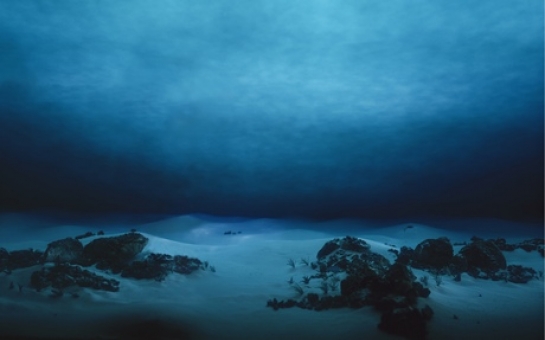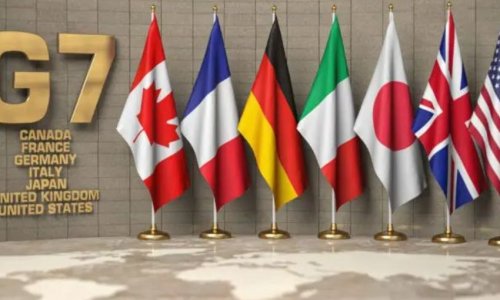The prospect of a race to the bottom of the ocean – a 21st-century high seas version of the Klondike gold rush – has alarmed scientists. The oceans, which make up 45% of the world's surface, are already degraded by overfishing, industrial waste, plastic debris and climate change, which is altering their chemistry. Now comes a new extractive industry – and scientists say governments are not prepared."It's like a land grab," said Sylvia Earle, an oceanographer and explorer-in-residence for National Geographic. "It's a handful of individuals who are giving away or letting disproportionate special interests have access to large parts of the planet that just happen to be under water."The vast expanses of the central Pacific seabed being opened up for mining are still largely an unknown, she said. "What are we sacrificing by looking at the deep sea with dollar signs on the few tangible materials that we know are there? We haven't begun to truly explore the ocean before we have started aiming to exploit it."But the warnings may arrive too late. The price of metals is rising. The ore content of the nodules of copper, manganese, cobalt and rare earths strewn across the ocean floor promise to be 10 times greater than the richest seams on land, making the cost of their retrieval from the extreme depths more attractive to companies.Mining the ocean floor of the central Pacific on a commercial scale is five years away, but the beginnings of an underwater gold rush are under way The number of companies seeking to mine beneath international waters has tripled in the last three or four years. "We have already got a gold rush, in a way," said Michael Lodge, deputy secretary general of the International Seabed Authority, which regulates the use of the sea floor in international waters. "The amount of activity has expanded exponentially."The Jamaica-based agency has granted 26 permits to date to explore an area the size of Mexico beneath the central Pacific that had been set aside for seabed mining – all but eight within the last three or four years.Britain is leading the way in a project led by Lockheed Martin, but Russia, China, Japan, and South Korea all have projects in play. This year alone, companies from Brazil, Germany and the Cook Islands have obtained permits to explore tracts of up to 75,000 sq km on the ocean floor for copper, cobalt, nickel and manganese, and the rare earth metals that help power smartphones, tablets and other devices.Other areas of the Pacific – outside international waters – are also opening up for mining. Papua New Guinea has granted permission to a Canadian firm, Nautilus Minerals, to explore a site 30km off its coast for copper, zinc and gold deposit worth potentially hundreds of millions of dollars.Lodge expects the pace to continue, with rising demand for metals for emerging economies, and for technologies such as hybrid cars and smart phones. Extracting the metals will not require drilling. The ore deposits are in nodules strewn across the rolling plains of sediment that carpet the ocean floor. Oceanographers say they resemble knobbly black potatoes, ranging in size from a couple of centimetres to 30cm. Mining companies say it may be possible to scoop them up with giant tongs and then siphon them up to vessels waiting on the surface.The problem is much remains unknown – not just about what exists on the ocean floor but how ocean systems operate to keep the planet habitable. The ocean floor was once thought to be a marine desert, but oceanographers say the sediment is rich in marine life, with thousands of species of invertebrates at a single site."It's tampering with ecosystems we hardly understand that are really at the frontier of our knowledge base," said Greg Stone, vice-president for Conservation International. "We are starting mining extracting operations in a place where we don't fully understand how it works yet. So that is our concern – disturbing the deep sea habitat."Most of the models rely on being able to produce 1 million tonnes of ore a year. Stone said the seabed authority was putting systems in place to protect the ocean floor, but other scientists said there still remained enormous risks to the sediment and the creatures that live there."It is going to damage vast areas of the sea floor," said Craig Smith, an oceanographer at the University of Hawaii who served as an adviser to the International Seabed Authority. "I just don't see any way [in] mining one of these claims that whole areas won't be heavily damaged."Earle expressed fears about how mining companies will deal with waste in the high seas. "Mining is possible," she said. "But the 20,000ft question is what do you do with the tailings? All of the proposals involved dumping the tailings at sea with profound impacts on the water column and the sea floor below. The Seabed Authority initially proposed to set aside 1.6m sq km of the ocean floor as protected areas, or about 20% of its territory. But those reserves are under review. As economic pressures rise, there are fears that commercial operations would begin to erode those protected areas."I think it is certain that within a year or two there will be more claims covering these areas and there won't be enough room left to develop these scientifically defensible protected areas," Smith said.Some have argued that with all the unknowns there should be no mining at all – and that the high seas should remain out of bounds for mineral extraction and for shipping.José María Figueres, a former president of Costa Rica and co-chair with the former British foreign secretary, David Miliband, of the Global Ocean Commission, an independent entity charged with developing ideas for ocean reform, suggested leaving all of the high seas as a no-go area for commercial exploitation (apart from shipping)."Do we know enough about the seabed to go ahead and mine it?" said Figueres. "Do we understand enough about the interconnection between the seabed, the column of water, the 50% of the oxygen that the ocean produces for the world, the 25% of the carbon that it fixes in order to go in and disrupt the seabed in way that we would if we went in and started mining? I don't think so, not until we have scientific backing to determine whether this is something good or bad for the planet."World leaders are now mobilising to address concerns, not just about seabed mining, but about how to safeguard ocean systems which are increasingly recognised as critical to global food security and a healthy planet.US secretary of state John Kerry, in a video address delivered to a high-level ocean summit hosted by the Economist and National Geographic last week, invited leaders to a two-day summit in Washington that will seek ways of protecting fishing stocks from overexploitation and protecting the ocean from industrial pollution, plastic debris and the ravages of climate change.The stakes have never been higher, scientists said. The oceans are becoming increasingly important to global food security. Each year more than a million commercial fishing vessels extract more than 80m metric tonnes of fish and seafood from the ocean. Up to three billion people rely on the sea for a large share of their protein, especially in the developing world.Those demands are only projected to grow. "If you look at where food security has to go between now and 2030 we have to start looking at the ocean. We have to start looking at the proteins coming from the sea," said Valerie Hickey, an environmental scientist at the World Bank.That makes it all the more crucial to crack down on illegal and unregulated fishing, which is sabotaging efforts to build sustainable seafood industries. Two-thirds of the fish taken on the high seas are from stocks that are already dangerous depleted – far more so than in those parts of the ocean that lie within 200 miles of the shore and are under direct national control.Estimates of the unreported and illegal catch on the high seas range between $10bn and $24bn a year, overwhelming government efforts to track or apprehend the illegal fishing boats. The illegal fishing also hurts responsible fishing crews.Figueres and Miliband suggested fitting all the vessels operating on the high seas with transponders to track their movements. That would single out rogue fishing vessels, making it easier for authorities to apprehend the vessels and their catch. It's not a perfect solution. A diplomat who has negotiated international agreements to control illegal fishing said captains – already cagey about revealing their favourite fishing routes – would simply flip off the transponders.United Nations officials were also sceptical of the idea of a high-seas police force. "It sounds a little bit like science fiction for me at this particular moment," said Irina Bokova, the director general of Unesco, which manages 46 marine sites. "What kind of police? Who is going to monitor? How is it founded? It's a very complicated issue."But the debate was a sign of growing momentum in an international effort to protect the oceans – before it's too late.When it comes to the ocean floor, that process is at the very early stages. But given the multiple disasters humans have made with the ocean so far, the stakes are high for getting it right."There is no doubt there are huge mineral resources to be extracted at some point in the future," Lodge said. "It's also true we don't know enough about the impact on biodiversity and the impact on marine life once the mining takes place."As the ultimate custodian, said Michael Lodge, the International Seabed Authority had two responsibilities; making sure companies access that vast mineral wealth in an environmentally responsible way, and then sharing it out equitably. "We have a huge challenge to devise a fiscal regime so that humankind as a whole gets a fair share. That's an enormous challenge, he said. "If we end up giving it away to industry, then we have failed in our missions."And the costs of such a failure are already becoming painfully evident in the greater ocean.(theguardian.com)ANN.Az
Underwater gold rush sparks fears of ocean catastrophe
World
23:59 | 03.03.2014

Underwater gold rush sparks fears of ocean catastrophe
This is the last frontier: the ocean floor, 4,000 metres beneath the waters of the central Pacific, where mining companies are now exploring for the rich deposits of ores needed to keep industry humming and smartphones switched on.
Follow us !










